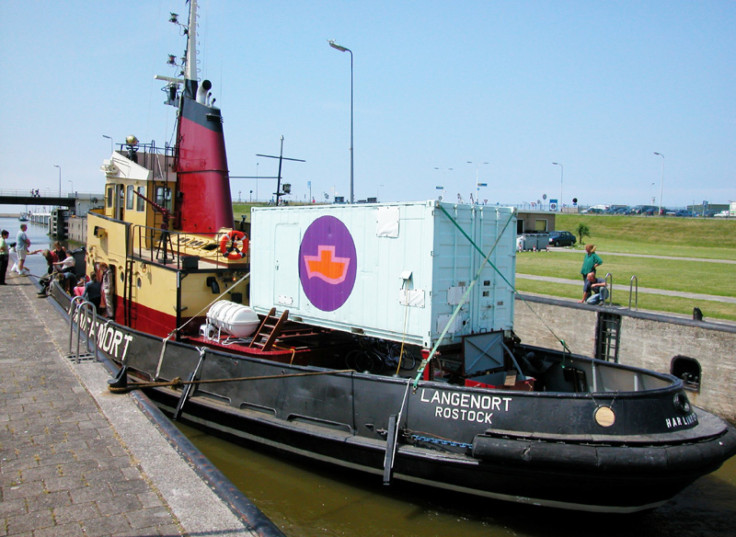‘Abortion Boat’ Set To Dock And Treat Women In Muslim-Majority Morocco

Moroccan women seeking to terminate a pregnancy will have a brief chance to do so this week when an "abortion ship" pulls into port to offer its services to women in the Muslim-majority North African country.
A Dutch organization called the Women on Waves Foundation, or WoW, runs the controversial service. From a tiny makeshift clinic mounted on a floating vessel, its staff dispenses abortion pills and medical advice to women who are up to six weeks pregnant. They do not perform surgical abortions.
WoW has so far attempted similar offshore operations in Ireland, Poland, Ecuador, Spain and Portugal. In all but the latter two countries, their efforts were rebuffed.
Morocco is the first Muslim country the “abortion boat” will attempt to visit, sparking serious concerns about how the public and authorities there might react. WoW says it was invited by an activist Moroccan group called the Alternative Movement for Individual Liberties.
Abortion is illegal in Morocco (except in cases where the mother's life is in danger), but WoW says between 600 and 800 women still perform the procedure every day.
“While wealthy women can afford safe abortion access, women of low socio-economic-status must often resort to unsafe methods that can result in morbidity and death,” said a WoW press release last week.
“Therefore, access to safe abortion is fundamentally an issue of social justice. According to the World Health Organization, unsafe abortion methods cause 13 percent of pregnancy-related deaths.”
The organization has not yet revealed where its ship will dock; that information is expected to be released on Wednesday.
As of Monday, said WoW founder and Dutch gynecologist Rebecca Gomperts to Agence France-Presse, “The ship is on its way. ... We expect it to stay for up to a week.”
Gomperts argues that because the vessel will operate on international waters, its activities are legal despite Morocco’s anti-abortion legislation.
But legality is far from the only issue; some worry whether the presence of an offshore abortion ship could spark dangerous protests. Abortion is forbidden by some -- but not all -- schools of Islam.
Anti-abortion activists and clerics often call on prohibitive passages in the Quran, like the verse in Sura 17: “Do not kill your children for fear of poverty. We give them sustenance, and yourselves too. Surely to kill them is a great wrong.”
But Muslims who support abortion rights argue that fetuses do not yet constitute “children,” and that the rights of the mother are most important. Just as in Christian-majority societies, it all comes down to a matter of interpretation.
Still, the arrival of the “abortion boat” could have dangerous consequences, especially now. Over the past month, a single act of blasphemy -- the production of an anti-Islam video in the United States -- has sparked violent protests that have so far led to the deaths of at least 50 people in various countries across the Muslim world.
In the Moroccan city of Casablanca, hundreds of citizens gathered outside of the U.S. Consulate to protest the film in mid-September. But that demonstration was small and peaceful, quite unlike the uproar that erupted in other countries.
That’s because the North African nation, a tourist hotspot that is only barely separated from Spain by the Strait of Gibraltar, has a fairly close relationship with the West. Its government is an ally of the United States; the two countries have had a free-trade agreement with since 2004.
The Arab Spring had an impact here, but no rulers were deposed. King Mohammed VI, a pragmatic monarch who is generally respected by his people, responded to 2011 protests by reforming the constitution to hand more power to the parliament, which is currently dominated by the moderate Islamist Justice and Development Party.
Though gender inequity is a serious issue in Morocco, the legalization of abortion is not such a far-fetched idea. Tunisia, another majority-Muslim country in North Africa, legalized it as early as 1973. And a major conference on abortion rights was held in Morocco’s capital city of Rabat just this summer, though no JDP officials were in attendance.
For now, the "abortion boat" will provide a brief opportunity for Moroccan women who can’t wait for a bill to pass in parliament.
At least, that’s the plan. WoW could yet be blocked -- perhaps by warships, as happened in 2004 in Portugal, or by accusations that it lacks necessary medical licenses, which stopped it from docking in Ireland on its maiden voyage in 2001.
But Gomperts explains that handing out the pregnancy-terminating pills isn’t her ultimate goal. To her, it’s about spreading awareness. That’s why WoW works with global women’s rights and reproductive health groups to set up hotlines and disseminate information, teaching women how to safely end unwanted pregnancies using oral abortion drugs like misoprostol and mifepristone.
“These few women that we actually help onboard the ship, they are very important, but [they] are not the only women that we help,” she told Newsweek on Monday.
“They open up the possibility to reach out to other women. The fact that we can actually do abortions on the ships makes the media interested, the people interested in the campaign. That is how other women know about medical abortion.”
© Copyright IBTimes 2024. All rights reserved.





















